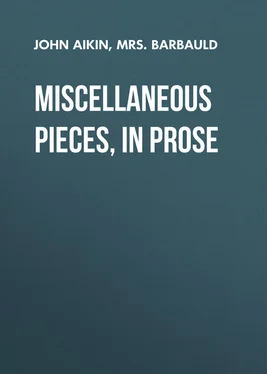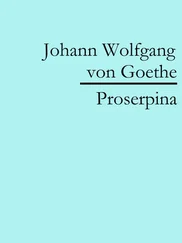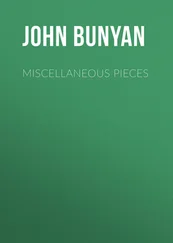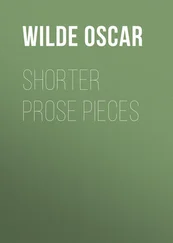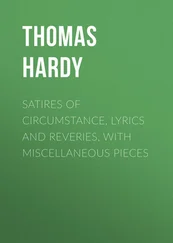John Aikin - Miscellaneous Pieces, in Prose
Здесь есть возможность читать онлайн «John Aikin - Miscellaneous Pieces, in Prose» — ознакомительный отрывок электронной книги совершенно бесплатно, а после прочтения отрывка купить полную версию. В некоторых случаях можно слушать аудио, скачать через торрент в формате fb2 и присутствует краткое содержание. Жанр: foreign_language, foreign_antique, foreign_prose, на английском языке. Описание произведения, (предисловие) а так же отзывы посетителей доступны на портале библиотеки ЛибКат.
- Название:Miscellaneous Pieces, in Prose
- Автор:
- Жанр:
- Год:неизвестен
- ISBN:нет данных
- Рейтинг книги:5 / 5. Голосов: 1
-
Избранное:Добавить в избранное
- Отзывы:
-
Ваша оценка:
- 100
- 1
- 2
- 3
- 4
- 5
Miscellaneous Pieces, in Prose: краткое содержание, описание и аннотация
Предлагаем к чтению аннотацию, описание, краткое содержание или предисловие (зависит от того, что написал сам автор книги «Miscellaneous Pieces, in Prose»). Если вы не нашли необходимую информацию о книге — напишите в комментариях, мы постараемся отыскать её.
Miscellaneous Pieces, in Prose — читать онлайн ознакомительный отрывок
Ниже представлен текст книги, разбитый по страницам. Система сохранения места последней прочитанной страницы, позволяет с удобством читать онлайн бесплатно книгу «Miscellaneous Pieces, in Prose», без необходимости каждый раз заново искать на чём Вы остановились. Поставьте закладку, и сможете в любой момент перейти на страницу, на которой закончили чтение.
Интервал:
Закладка:
Retire, thou swelling voice of pride! thy spear is light as the taper reed. Pierce the roes of the desart; and call the hunter to the feast of songs, but speak not of the daughter of Connal, son of the feeble arm! Seláma is the love of heroes.
Try thy strength with the feeble arm, said the rising pride of youth. Thou shalt vanish like a cloud of mist before the sun, when he looks abroad in the power of his brightness, and the storms are rolled away from before his face.
But thou thyself didst fall before Reuthamir, in all thy boasting words. As a tall ash of the mountain, when the tempest takes its green head and lays it level on the plain.
Come from thy secret cave, Seláma! thy foes are silent and dark. Thou dove that hidest in the clefts of the rocks! the storm is over and past. Come from thy rock, Seláma! and give thy white hand to the chief who never fled from the face of glory, in all its terrible brightness.
She gave her hand, but it was trembling and cold, for the spear was deep in her side. Red, beneath her mail, the current of crimson wandered down her white breast, as the track of blood on Cromla’s mountains of snow, when the wounded deer slowly crosses the heath, and the hunters cries are in the breeze. Blest be the spear of Reuthamir! said the faint voice of the lovely, I feel it cold in my heart. Lay me by the son of Semo. Why should I know another love? Raise the tomb of the aged, his thin form shall rejoice, as he sails on a low-hung cloud, and guides the wintry storm. Open your airy halls, spirits of my love!
And have I quench’d the light which was pleasant to my soul? said the chief of Morna. My steps moved in darkness, why were the words of strife in thy tale? Sorrow, like a cloud, comes over my soul, and shades the joy of mighty deeds. Soft be your rest in the narrow house, children of grief! The breeze in the long whistling grass shall not awaken you. The tempest shall rush over you, and the bulrush bow its head upon your tomb, but silence shall dwell in your habitation; long repose, and the peace of years to come. The voice of the bard shall raise your remembrance in the distant land, and mingle your tale of woe with the murmur of other streams. Often shall the harp send forth a mournful sound, and the tear dwell in the soft eyes of the daughters of Morna.
Such were the words of Reuthamir, while he raised the tombs of the fallen. Sad were his steps towards the towers of his fathers, as musing he cross’d the dark heath of Lena, and struck, at times, the thistle’s beard.
AGAINST INCONSISTENCY IN OUR EXPECTATIONS
“What is more reasonable, than that they who take pains for any thing, should get most in that particular for which they take pains? They have taken pains for power, you for right principles; they for riches, you for a proper use of the appearances of things: see whether they have the advantage of you in that for which you have taken pains, and which they neglect: If they are in power, and you not, why will not you speak the truth to yourself, that you do nothing for the sake of power, but that they do every thing? No, but since I take care to have right principles, it is more reasonable that I should have power. Yes, in respect to what you take care about, your principles. But give up to others the things in which they have taken more care than you. Else it is just as if, because you have right principles, you should think it fit that when you shoot an arrow, you should hit the mark better than an archer, or that you should forge better than a smith.”
Carter’s Epictetus.As most of the unhappiness in the world arises rather from disappointed desires, than from positive evil, it is of the utmost consequence to attain just notions of the laws and order of the universe, that we may not vex ourselves with fruitless wishes, or give way to groundless and unreasonable discontent. The laws of natural philosophy, indeed, are tolerably understood and attended to; and though we may suffer inconveniences, we are seldom disappointed in consequence of them. No man expects to preserve orange-trees in the open air through an English winter; or when he has planted an acorn, to see it become a large oak in a few months. The mind of man naturally yields to necessity; and our wishes soon subside when we see the impossibility of their being gratified. Now, upon an accurate inspection, we shall find, in the moral government of the world, and the order of the intellectual system, laws as determinate fixed and invariable as any in Newton’s Principia. The progress of vegetation is not more certain than the growth of habit; nor is the power of attraction more clearly proved than the force of affection or the influence of example. The man therefore who has well studied the operations of nature in mind as well as matter, will acquire a certain moderation and equity in his claims upon Providence. He never will be disappointed either in himself or others. He will act with precision; and expect that effect and that alone from his efforts, which they are naturally adapted to produce. For want of this, men of merit and integrity often censure the dispositions of Providence for suffering characters they despise to run away with advantages which, they yet know, are purchased by such means as a high and noble spirit could never submit to. If you refuse to pay the price, why expect the purchase? We should consider this world as a great mart of commerce, where fortune exposes to our view various commodities, riches, ease, tranquillity, fame, integrity, knowledge. Every thing is marked at a settled price. Our time, our labour, our ingenuity, is so much ready money which we are to lay out to the best advantage. Examine, compare, choose, reject; but stand to your own judgment; and do not, like children, when you have purchased one thing, repine that you do not possess another which you did not purchase. Such is the force of well-regulated industry, that a steady and vigorous exertion of our faculties, directed to one end, will generally insure success. Would you, for instance, be rich? Do you think that single point worth the sacrificing every thing else to? You may then be rich. Thousands have become so from the lowest beginnings by toil, and patient diligence, and attention to the minutest articles of expence and profit. But you must give up the pleasures of leisure, of a vacant mind, of a free unsuspicious temper. If you preserve your integrity, it must be a coarse-spun and vulgar honesty. Those high and lofty notions of morals which you brought with you from the schools must be considerably lowered, and mixed with the baser alloy of a jealous and worldly-minded prudence. You must learn to do hard, if not unjust things; and for the nice embarrassments of a delicate and ingenuous spirit, it is necessary for you to get rid of them as fast as possible. You must shut your heart against the Muses, and be content to feed your understanding with plain, houshold truths. In short, you must not attempt to enlarge your ideas, or polish your taste, or refine your sentiments; but must keep on in one beaten track, without turning aside either to the right hand or to the left. “But I cannot submit to drudgery like this – I feel a spirit above it.” ’Tis well: be above it then; only do not repine that you are not rich.
Is knowledge the pearl of peace? That too may be purchased – by steady application, and long solitary hours of study and reflection. Bestow these, and you shall be wise. “But (says the man of letters) what a hardship is it that many an illiterate fellow who cannot construe the motto of the arms on his coach, shall raise a fortune and make a figure, while I have little more than the common conveniences of life.” Et tibi magna satis! – Was it in order to raise a fortune that you consumed the sprightly hours of youth in study and retirement? Was it to be rich that you grew pale over the midnight lamp, and distilled the sweetness from the Greek and Roman spring? You have then mistaken your path, and ill employed your industry. “What reward have I then for all my labours?” What reward! A large comprehensive soul, well purged from vulgar fears, and perturbations, and prejudices; able to comprehend and interpret the works of man – of God. A rich, flourishing, cultivated mind, pregnant with inexhaustible stores of entertainment and reflection. A perpetual spring of fresh ideas; and the conscious dignity of superior intelligence. Good heaven! and what reward can you ask besides?
Читать дальшеИнтервал:
Закладка:
Похожие книги на «Miscellaneous Pieces, in Prose»
Представляем Вашему вниманию похожие книги на «Miscellaneous Pieces, in Prose» списком для выбора. Мы отобрали схожую по названию и смыслу литературу в надежде предоставить читателям больше вариантов отыскать новые, интересные, ещё непрочитанные произведения.
Обсуждение, отзывы о книге «Miscellaneous Pieces, in Prose» и просто собственные мнения читателей. Оставьте ваши комментарии, напишите, что Вы думаете о произведении, его смысле или главных героях. Укажите что конкретно понравилось, а что нет, и почему Вы так считаете.
